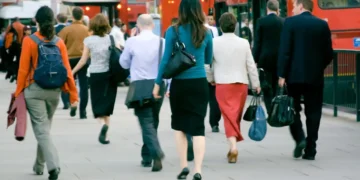A McKinsey survey from June shows that around 1 in 3 workers that have returned to the office said this transition has had a negative impact on their mental health.
Workers that stated this were also five times more likely to report reducing their responsibilities at work.
On the other hand, 1 in 3 workers said this shift has positively impacted their mental health and that they felt more engaged.
However, because the Delta variant of Covid-19 is much more contagious than the original strain, leaders are being forced to reevaluate their return-to-work strategies.
The report shows that around half of workers that are still remote, but are expected to return to the office, are anticipating a decrease in their mental health during the transition. Key concerns include the risk to worker’s physical health, as well as losing the autonomy they gained during their remote working period.
Workers need to know that the office is safe to return to, which means knowing that their leaders invested into improving the environment by incorporating better air ventilation, enhanced sanitation protocols and more.
Working parents in particular are more likely to be stressed about returning to the workplace. The survey showed that 44% of parents who have come back to the office said it has hurt their mental health.



 Dr. Gleb Tsipursky – The Office Whisperer
Dr. Gleb Tsipursky – The Office Whisperer Nirit Cohen – WorkFutures
Nirit Cohen – WorkFutures Angela Howard – Culture Expert
Angela Howard – Culture Expert Drew Jones – Design & Innovation
Drew Jones – Design & Innovation Jonathan Price – CRE & Flex Expert
Jonathan Price – CRE & Flex Expert











